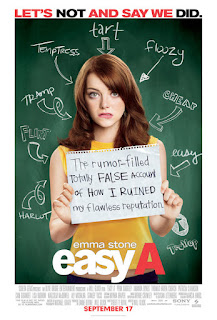Movie Name: Run
Year of Release: 2020
Director: Aneesh Chaganty
Starring: Sarah Paulson, Kiera Allen, Pat Healy, Sara Sohn, Erik Athavale
Genre: Thriller, Mystery
Score out of ten (whole numbers only): 4
View Trailer
Year of Release: 2020
Director: Aneesh Chaganty
Starring: Sarah Paulson, Kiera Allen, Pat Healy, Sara Sohn, Erik Athavale
Genre: Thriller, Mystery
Score out of ten (whole numbers only): 4
View Trailer
Synopsis and Review:
Following his well received feature directorial debut, coincidentally named "Following", director Aneesh Chaganty returns with an interesting exercise in suspense. The film follows the story of Diane Sherman, who at the beginning of the film we witness giving birth. 17 years later we witness Diane and her daughter Chloe going through the motion of their daily habits, which have quite a few challenges since Chloe is afflicted with a series of medical issues which have made her dependent of her mom's help. Nonetheless Chloe is very intelligent, resourceful, and has been waiting on the status of her application for the University of Washington. Her mom controls the incoming mail, as well as always keeps tabs on the medication Chloe has to take. Chloe notices a new pill added to her stack, and upon further investigation she uncovers that the pill is actually destined for dogs and causes leg paralysis on humans. As her mom drugs her and locks her in the room, Chloe's suspicions mount that something is not right, and she manages to get out and secure the help of a DHL driver, that is until her mom comes back and after confronting him, kills him. As Chloe is once again imprisoned, she discovers more information on Diane, and her past, which force her to take some dramatic decisions in order to escape.
"Run" has some faint echoes from Rob Reiner's "Misery" and even some parallels to some of Fritz Bohm's "Wildling", in the sense that for the most part, it is in fact a two person chamber type of feature. It is also a film where the suspense is suppose to tighten as one the characters uncovers a series of elements that indicates that not all is what it seems. However, it's a film where once again the characters don't have much dimension to them, with Kiera Allen's Chloe in particular, going from innocent daughter, to embittered avenging angel in a blip, even if this change of heart is directed towards the deranged person who has taken care of her all her life (if there is indeed some conflict on her part, it's very much quickly brushed aside, with not much emotional scars apparently left). Sarah Paulson tries her best to give the part the dimension of a Piper Laurie performance as Margaret White in Brian De Palma's "Carrie", where her conviction of saving her daughter topples everything and everyone that comes in contact with them, but her character's motivation is paper thin. The film and the script fails to give much dimension to the characters - it tries to be an exercise in suspense, therefore taut in character definition, drinking from the B-movie type of architecture, though it lacks conviction in doing so, and for that matter, style. The film could definitely benefit from someone's vision such as Brian De Palma or even John Dahl, but as it is, it's a somewhat forgettable endeavor, that even the excellent Sarah Paulson can't save.



















